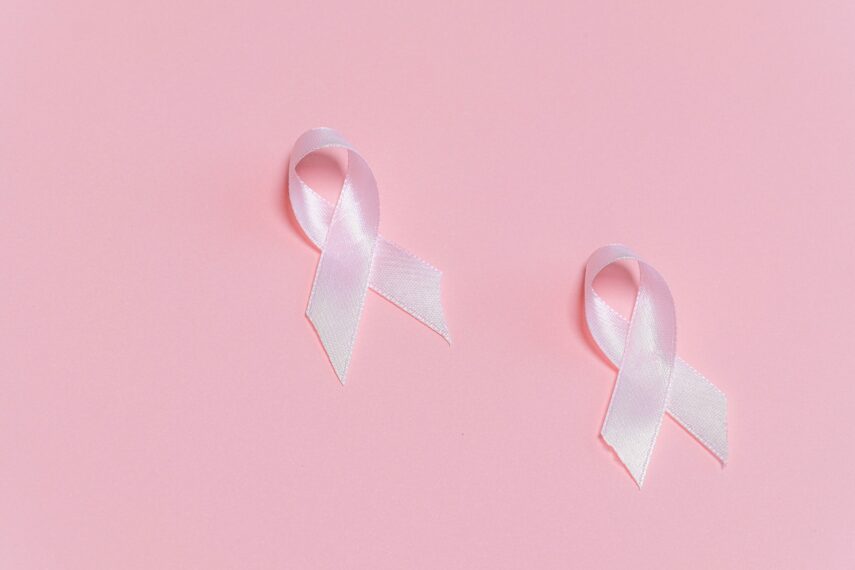
As of today, breast cancer is the most diagnosed cancer in the world. According to the Canadian Cancer Society, 78 Canadian women a day hear the words “You have breast cancer”, and 15 women pass away from the disease. In addition, 270 Canadian men are diagnosed with breast cancer every year. October is Breast Cancer Awareness Month. Annually, during this time, the world raises awareness about the impact of breast cancer. There are many ways to help, such as donating, fundraising, becoming a donor or simply spreading the word about the condition. With better research and greater awareness, we can ensure that no one fears breast cancer.
At Tia Health, we care about the future of those who have faced breast cancer or may be diagnosed with it. This article will cover the causes, signs & symptoms of breast cancer, and answer some of your most frequently asked questions.
What is Breast Cancer?
Changes in the cells of the breast may lead to both non-cancerous and cancerous conditions. Non-cancerous conditions include atypical hyperplasia, cysts, and non-cancerous tumours such as intraductal papillomas.
Otherwise, abnormal changes in breast cells may cause breast cancer. Breast cancer develops when abnormal cells grow in one or both of a person’s breasts and create a cancerous (malignant) tumour which then destroys the nearby tissue.
There are two main types of breast cancer: ductal carcinoma and lobular carcinoma. Ductal carcinoma grows in the cells that line the ducts. Lobular carcinoma grows in the cells of the lobules. Both types of breast cancer can be in situ (cancer does not grow into surrounding tissues) or invasive.
What Are the Signs and Symptoms of Breast Cancer?
Severe symptoms of breast cancer may not appear at the initial stages. They start to show up as the tumour starts to grow. However, there are a few early-stage symptoms of breast cancer.
Some of the early signs & symptoms include:
- A firm or hard lump in the armpit that feels different from the rest of the breast (only for ductal carcinoma)
- Changes in the shape or size of the breast
- Changes to the appearance of the nipple
- Discharge or blood that comes out of the nipple without squeezing it
Some of the late signs & symptoms:
- bone pain
- weight loss
- nausea
- jaundice
- shortness of breath
- double vision
- muscle weakness
What Are the Stages of Breast Cancer?
In cancer, stages describe the extent to which the disease has developed in your body up to this point. For breast cancer, there are 5 stages.
Stage 0: Carcinoma in situ (DCIS, or Paget disease of the breast with no associated tumour mass).
Stage 1: Tumour is 2 cm or less across.
Stage 2 (including 2A & 2B): The tumour is larger than 2 cm but not more than 5 cm. Or the tumour is larger than 5 cm.
Stage 3 (including 3A, 3B & 3C): The tumour is larger than 5 cm.
Stage 4: Tumour of any size growing and spreading to other body parts or organs.
What Are the Causes & Risk Factors of Breast Cancer?
There is substantial evidence that proves the following factors cause and increases your risk for breast cancer
- Personal history of breast cancer
- Family history of breast cancer
- BRCA gene mutations. Women with mutations in certain genes, such as BRCA1 and BRCA2, are at higher risk of breast cancer.
- Dense breasts
- Reproductive history. Starting menstrual periods before age 12 and starting menopause after age 55 expose women to the risk of getting breast cancer.
- Exposure to ionizing radiation
- Hormone replacement therapy
- Oral contraceptives
What is Inflammatory Breast Cancer?
Inflammatory breast cancer is a type of cancer that develops when cells block the lymph vessels in the skin of the breast, and the breast becomes swollen and red (inflamed). This type of breast cancer is more aggressive and spreads much faster.
Inflammatory breast cancer is more common in young women and women of colour.
Is Breast Cancer Hereditary?
Indeed, having at least one first-degree relative (mother, sister, daughter) with breast cancer doubles a woman’s risk of developing breast cancer. The more first-degree relatives with breast cancer you have, the greater your risk.
The risk with second-degree relatives (grandmother, aunt, niece) is not as high.
Can Men Have Breast Cancer?
According to statistics, less than 1% of all breast cancer cases occur in men. The risk of men developing the condition increases with age. Frequently, men diagnosed with breast cancer are over 6o years old.
Can Teenagers Have Breast Cancer?
Research suggests that breast cancer is the most common type of cancer in young women aged 15 and over. If developed, young women are more likely to have “larger breast tumours, unfavourable biological characteristics, distant metastatic disease at diagnosis, and adverse outcome.”
Breast Cancer Screening in Canada: BC, QC, ON
Screening is crucial to either prevent yourself from breast cancer or detect its development at an early stage. When breast cancer is found early, the chances of successful treatment are much higher.
If you are:
- 40 to 49 years old, talk to your doctor about breast cancer risks and consult whether you should have a mammogram.
- 50 to 74 years old, you should have a mammogram every 2 years.
- 75 years or older, talk to your doctor and consult if a mammogram is right for you.
In Canada, provincial screening programs use screening mammography. It is a low-dose x-ray of the breast. Mammography is the most accurate way to find breast cancer early in women.
You can contact your provincial cancer screening by visiting the following websites:
Breast Cancer Screening in British Columbia
Breast Cancer Screening in Quebec
Breast Cancer Screening in Ontario
Can I Prevent Breast Cancer?
Breast Cancer is a complex condition that cannot be prevented completely because it’s caused by various factors, many of which are related to genetics or individual history.
Yet, you may lower your risk of developing the disease by doing the following:
- Look after a healthy diet & a healthy body weight
- Be physically active
- Avoid smoking & second-hand smoke
- Learn about breast cancer screening
- Find out if you have any risk factors present
When Should I See a Doctor for a Breast Cancer?
If you notice any symptoms, signs or changes in your breasts you should consider seeking professional medical help. The chances of treating breast cancer successfully are higher when detected at stages. That’s why raising awareness during Breast Cancer Awareness Month is so important!



